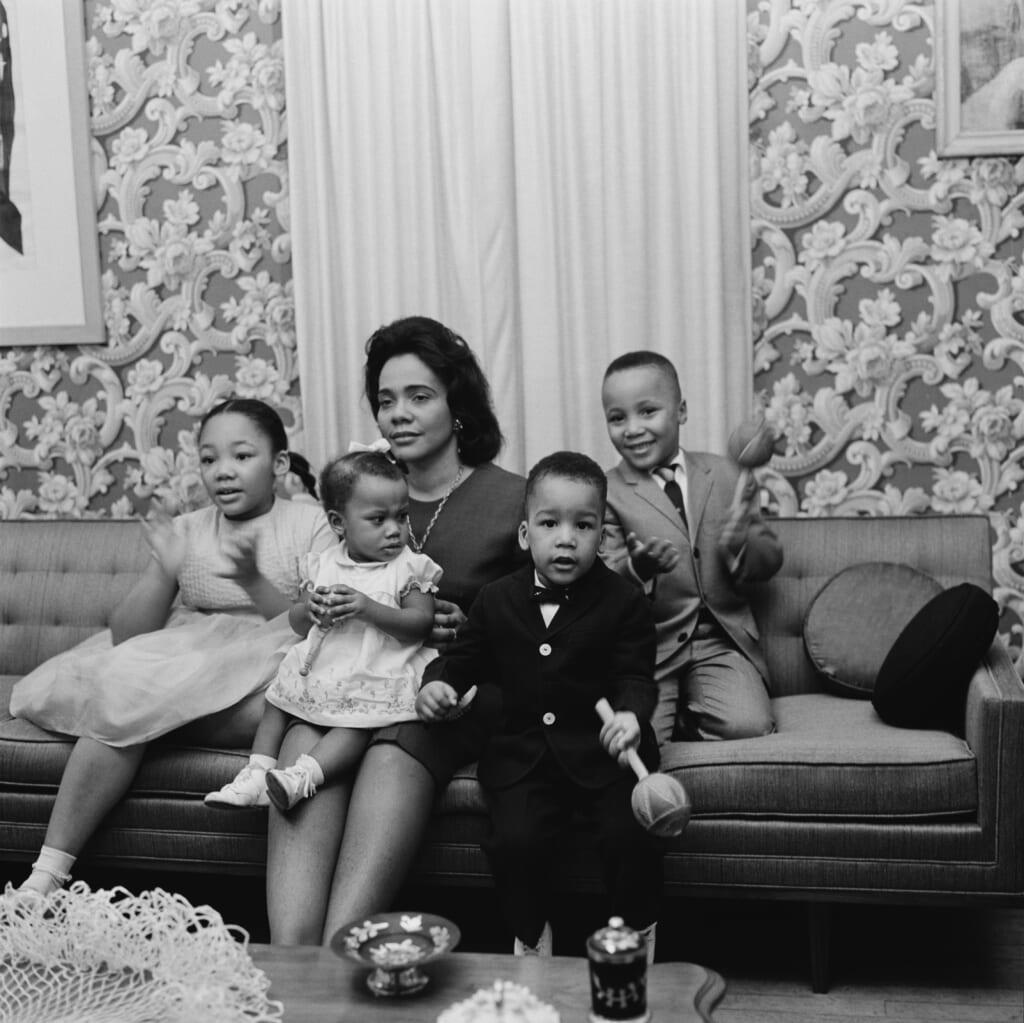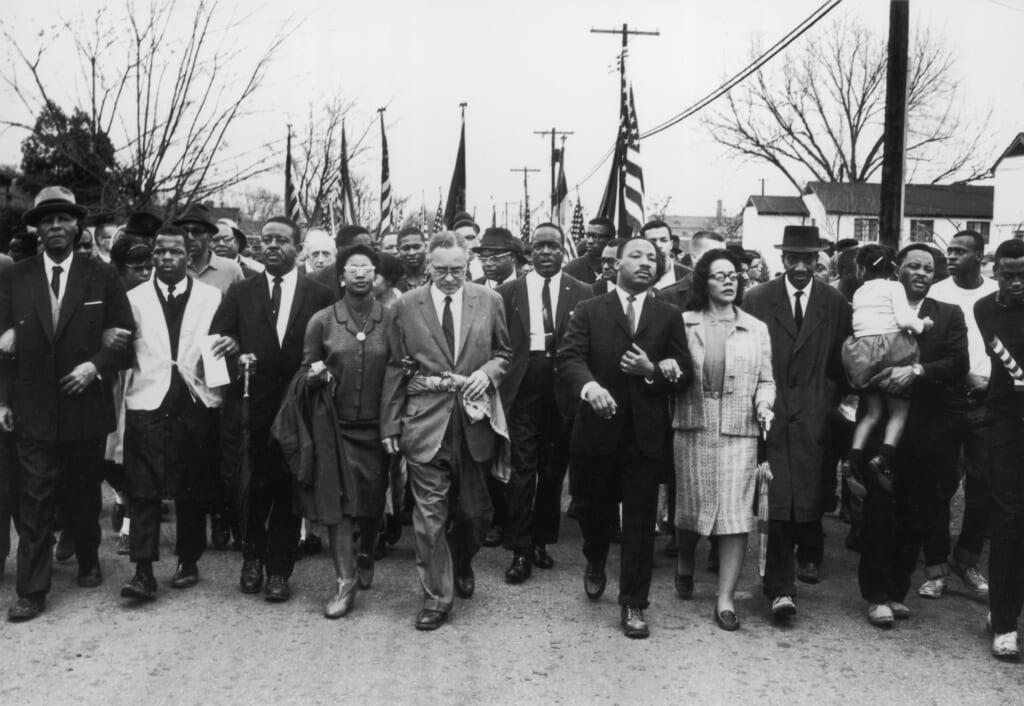Dear white people: Martin Luther King Jr. is not Black Jesus. He did not die for our ‘sins.’
OPINION: So often, when weaponizing MLK’s words against Black people, white people like to lecture us about “what he died for” as if his death was voluntary. It was not.
Editor’s note: The following article is an op-ed, and the views expressed are the author’s own. Read more opinions on theGrio.
On this day, 55 years ago, the Rev. Dr. Martin Luther King Jr. was murdered as he stood minding his own business on the balcony of the Lorraine Motel in Memphis, Tennessee.
It is important that I phrase it that way because in the years since his death, the same types of white people who wanted him dead because of the words he said now weaponize his words and his death against Black people whenever they want to put us in “our place” because we are so bold as to talk about race, racism and issues of racial justice openly and out loud.
It is a sad and tired refrain that we hear over and over and over again from people who claim to know him and his works but prove time and time again that they have only managed to memorize, at best, a few words out of the many he said during his time on earth.
King was a revolutionary Black activist who was smart, thoughtful, practiced and intentional in and about his work. He was a prominent leader in the Civil Rights Movement that gave birth to the Civil Rights Act of 1964, the Voting Rights Act of 1965, and the Fair Housing Act of 1968. These legislations were some of the biggest strides toward racial justice since the 13th, 14th and 15th Amendments, and that is a significant historical note.
The problem is, as white supremacy is wont to do, King’s words, his mission, his legacy and his history have been completely whitewashed and sanitized to fit the narrative that suits a white supremacist ideology.
As Kaitlyn Byrd so aptly wrote for NBC four years ago:
For white people, Rev. Dr. Martin Luther King Jr. exists mainly as a mainstream portrayal of a saint of redemption. In this historical interpretation, Dr. King saved both black and white Americans from the evils of segregation, while overcoming the resistance of a few, powerful bigoted individuals with little more than dignified protest and the strength of his convictions.
This Dr. King tells us that hate cannot drive out hate, that we should judge each other on the content of our characters, and that poverty and racism are their own evils. This Dr. King does not think us wrong as long as we do not have hate in our hearts, doesn’t want us to dwell on each other’s differences and knows that what hurts white people also hurts black people. This Dr. King does not judge. This Dr. King does not see color. He does not ask for reparations. His solitary request is to act with love.
The headassery it takes to reduce King to this narrative is astounding, but not surprising.
Whiteness is always looking for absolution and a way to escape accountability, and what better way to accomplish that than that to commit what essentially amounts to DARVO against Black people – they deny any wrongdoing against Black people, they attack us for even speaking out against actions, systems, and anything else that directly and negatively impacts us, and then they make us the villain — i.e. “Your [sic] the real racist!”
MLK was not colorblind.
One of the biggest lies ever told about King is that he believed in a colorblind society. This is false.
It is an idea derived from a 40-word passage from his 1963 “I Have a Dream” speech in which he said, “I have a dream that my four little children will one day live in a nation where they will not be judged by the color of their skin but by the content of their character. I have a dream today.”
And if we are being honest, that 40-word passage has been whittled down to nine simple words “not be judged by the color of their skin.”
What King meant when he said that and what white people have twisted it to mean are two different things.
Imagine you gave a 17-minute speech of over 1,600 words and the very people you were speaking directly to — white people — took that very powerful message and whittled it down to a nine-word dependent clause that is repeatedly taken out of context.
That speech was delivered at a time when Black people were still living under the looming dark clouds of Jim Crow and segregation. America was not equal, and Black people were not treated equally. We were not free to experience America in the same ways that white people could. We couldn’t vote in certain places without fear of losing our lives; we couldn’t live in certain areas; we couldn’t get certain jobs; our children couldn’t attend the same schools as white children, and we couldn’t even drink out of the same water fountains or use the same bathrooms as white people.
King was well aware of the duplicity that existed between the America that was promised in the Constitution, and the America that existed for Black people, and he spoke directly to that in his speech.
That 40-word passage wasn’t a plea for everyone to be colorblind; it was a direct rebuke of the systems of whiteness and white supremacy that held Black people back. When he said “my four little children,” yes, he was speaking directly about Martin III, Dexter, Yolanda and Bernice, but it was also a metaphor for Black Americans as a whole. King wanted a better future for us all as Black people.

White people completely ignore the totality of King’s speech and the message that was entirely meant for them and instead weaponize those nine words against us whenever we speak openly about racism. It is meant to cow us into submission and make us shut our mouths, and I, for one, refuse; do you hear me?
Even the MLK Holiday was an attempt at whitewashing his legacy. As was written in the Boston Review in 2017:
The inaccurate conflation of King’s activism with the ideology of colorblindness—in which ignoring race is positioned as the only way to end racism—began in earnest during the Reagan administration. Reagan, who thought little of King, ultimately used the creation of a national holiday honoring King as a way to coopt his legacy, enabling Reagan ironically to oppose key civil rights laws in the name of aligning himself with King’s supposedly colorblind dream. In so doing, Reagan became one of the most successful proselytes of what sociologist Eduardo Bonilla-Silva terms “colorblind racism,” and Reagan’s frequent citation of King marked the beatification of King not as a champion of racial justice but of colorblind ideology.
King’s nonviolence was not passive.
Another misconception about King is that his tendency to lean on nonviolence in all of his resistance was him being passive.
We are constantly reminded of his “nonviolent stance” when we take to the streets to protest injustice. Never mind that King himself recognized riots as an act of resistance; white people want us to think that King meant for us to sit on our hands and our asses and simply speak quietly and at “the right time” and “ask nicely” for the things we want.
In his speech “The Other America,” delivered at Grosse Pointe High School in March 1968, King said, “And I must say tonight that a riot is the language of the unheard. And what is it America has failed to hear? It has failed to hear that the plight of the negro poor has worsened over the last twelve or fifteen years. It has failed to hear that the promises of freedom and justice have not been met. And it has failed to hear that large segments of white society are more concerned about tranquility and the status quo than about justice and humanity.”
You won’t hear white people quoting that, however, and they for sure won’t reference it. Instead, they will continue to highlight that he was nonviolent in his approach to activism, completely missing the point that his nonviolent approach was a direct rebuke of the violence with which white America operated (and continues to operate today).
If you walk up to me and slap me and, in turn, I turn around and knock your ass out, everyone sees two people being violent toward each other.
If, however, when you walk up and slap me, I continue speaking my truth and seeking other means of trying to get you to understand and accept what I am saying, people are going to notice that you are answering my very rational requests with overt violence.
That may not be the best example or analogy, but it is an oversimplified way of illustrating what King’s nonviolent approach did.
He was, after all, on a world stage, and the world was witnessing white America’s increasing violence toward a group of people who were simply saying, “Let us be free.”
King did not die for our “sins.”
The final thing I want to address is the false narrative of what “MLK died for.”
This is another lie that is trotted out whenever white people want to weaponize MLK against us.
“MLK didn’t die for this!” they will say as a form of rebuke.
The implication in that is that King volunteered to die to make America better for us. He did not.

Martin Luther King Jr. was murdered, and he was murdered because white America could not handle the things that he stood for and spoke out about. They wanted to silence him and scare the rest of us into discontinuing a movement he was a huge part of.
They have turned him into some sort of Black Jesus who died to absolve white people of their sins and to hold Black people accountable for ours.
We aren’t the ones “sinning” here, and his death is symbolic of everything he identified as being wrong with America, but you won’t hear white people saying that either.
They mention his death without acknowledging the violence attached to it. He was murdered. A bullet pierced his cheek; broke his jaw; traveled down his spine, breaking several vertebrae as it went; severed his jugular vein and several other major arteries; and ripped his necktie off.
It was violent and brutal. He didn’t die peacefully in his sleep. He died lying on the balcony in front of a hotel room, likely drowning in his own blood.
But please, tell us more about what he died for.
Martin Luther King Jr. stood for a lot of things, but being the Black Jesus that is weaponized by white people against Black people is not one of them, and today of all days, I wanted to write this reminder for white people to stop using him in that fashion.
Thank you.

Monique Judge is a storyteller, content creator and writer living in Los Angeles. She is a word nerd who is a fan of the Oxford comma, spends way too much time on Twitter, and has more graphic t-shirts than you. Follow her on Twitter @thejournalista or check her out at moniquejudge.com.
TheGrio is FREE on your TV via Apple TV, Amazon Fire, Roku, and Android TV. Please download theGrio mobile apps today!
The post Dear white people: Martin Luther King Jr. is not Black Jesus. He did not die for our ‘sins.’ appeared first on TheGrio.
